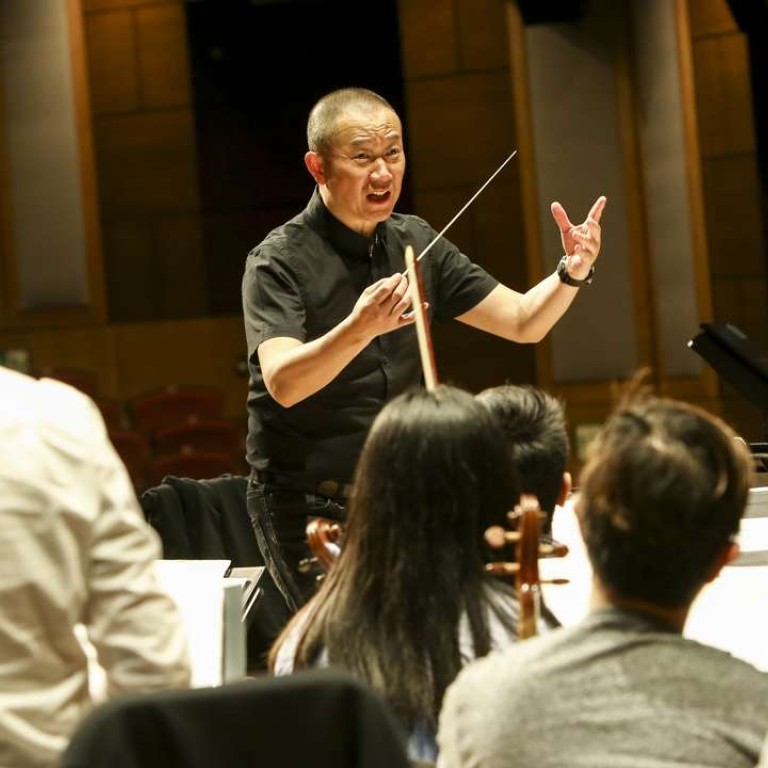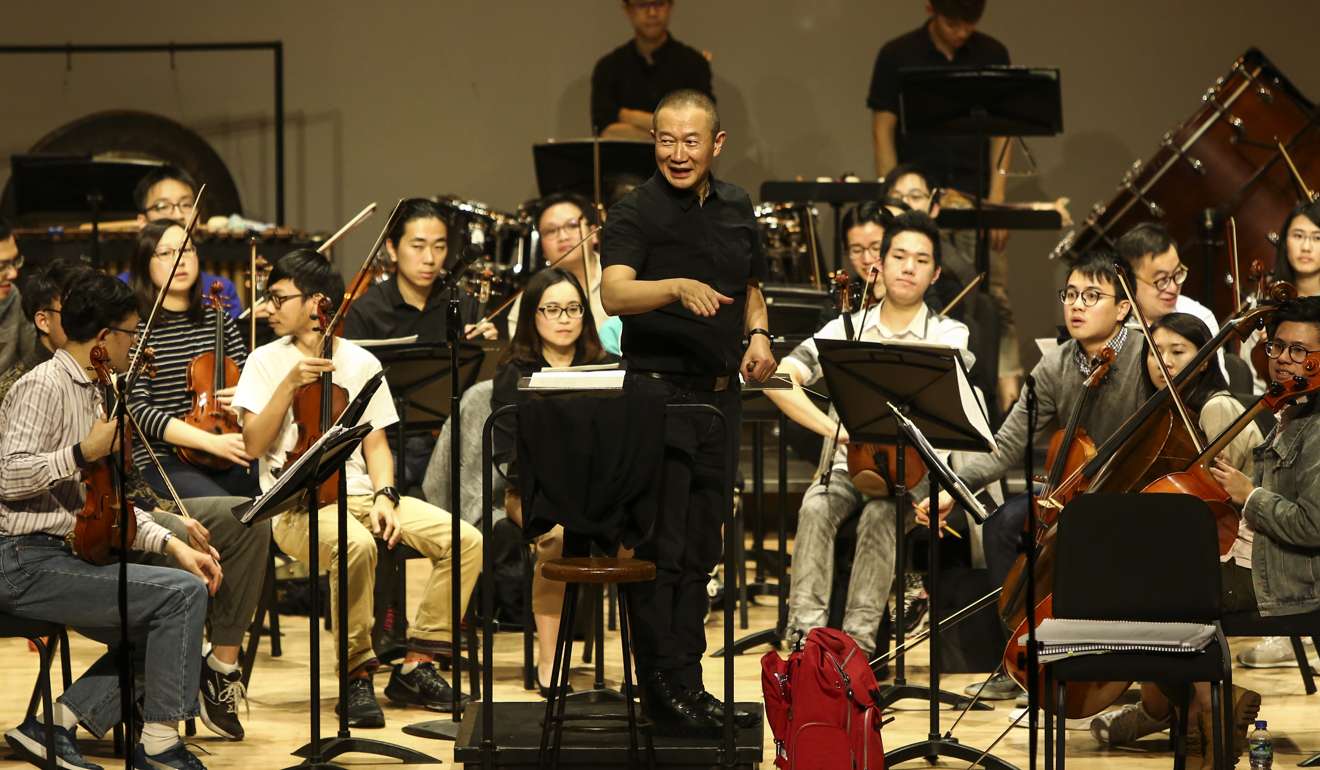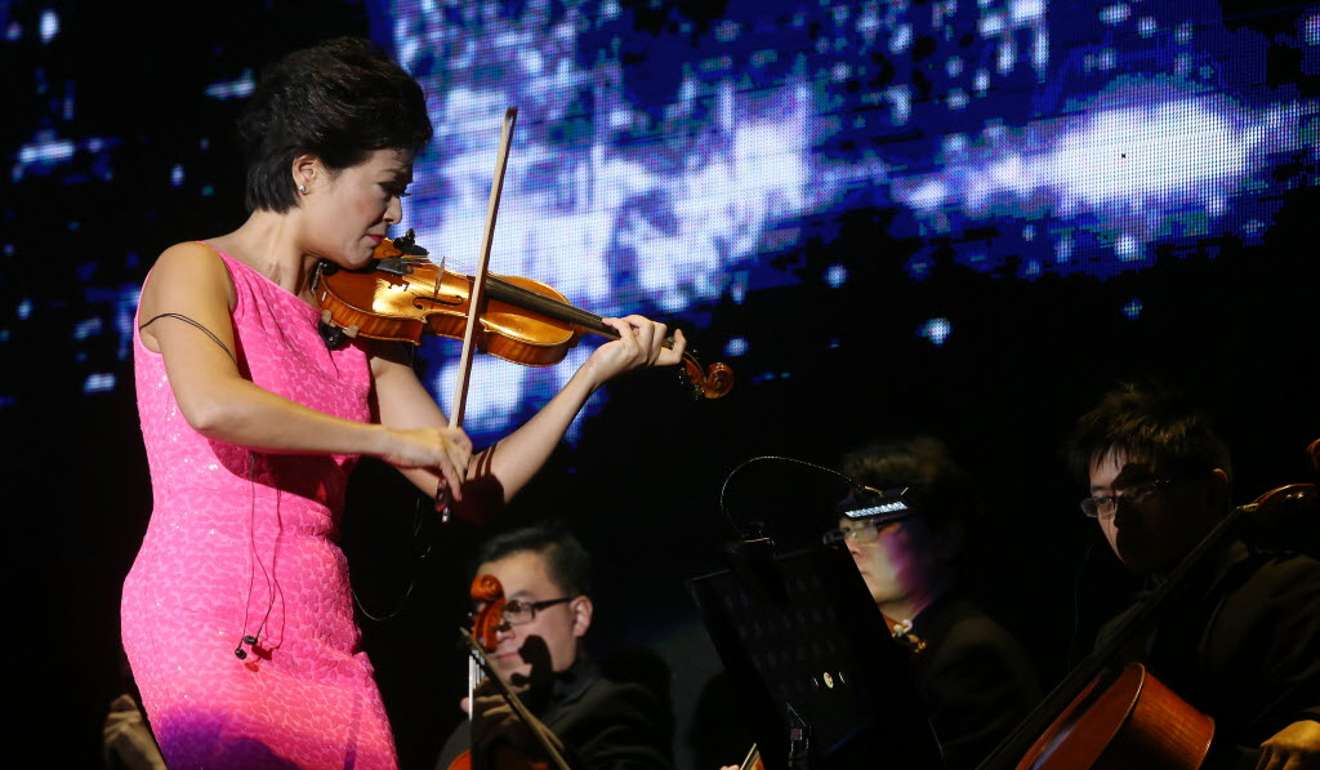
How Oscar-winning composer Tan Dun is using culture to create a symphony for Hong Kong’s identity
Shanghai-based maestro in town for youth music event organised by renowned violinist Yao Jue
Though the blending of cultures is a core part of Hong Kong’s identity, it takes a strong root to turn out new leaves, Oscar-winningcomposer Tan Dun has observed.
Tan, the first Chinese composer to win an Academy Award in 2001 for the film music in Crouching Tiger, Hidden Dragon, made the remarks while he was reflecting on a piece he wrote in 1997 for Hong Kong’s handover to China.
“I remember I discussed with [renowned cellist] Yo-Yo Ma how we could present the culture of Hong Kong over the East and West – its modern and traditional traits,” Tan said.
“We concluded that the blending of those traits constitutes Hong Kong’s identity as well as its future.”

The resultant Symphony 1997: Heaven, Earth, Mankind, which he conducted on the day of the handover 20 years ago, reflected his desire for harmony. And though the city has seen divisions in recent years, Tan’s optimism has remained steadfast.
“From 1997 to now, I look at Hong Kong positively. It’s a beautiful reality, and a pearl of the world to everybody,” he said.
“There may be a debate here and there, but that doesn’t turn Hong Kong into a disaster. There are debates in the United States all the time, I think it’s quite normal.”

The Shanghai-based maestro is in town this week to take part in “21st Century Music Education for Young People”, an event organised by Hong Kong violinist Yao Jue.
“We hope our young people would be inspired through a direct dialogue and music-making with a world-class maestro who speaks the same language as all of us,” said Yao, who was born in Shanghai and has been based in Hong Kong since 1992.
Young people have been involved in major political events since the 1911 revolution, so the question is how to direct them the right way
“Music is an international language that brings us together on stage or in the audience, and I hope the opportunity to have a face-to-face encounter will produce an impact that’s worth our efforts to prepare this during the past two years,” she added.
Tan was to meet with students and the public on Thursday night at Polytechnic University and conduct a concert on Saturday at the Cultural Centre.
The event will see 70 musicians from local universities and the Hong Kong String Orchestra join to perform his latest work – a piece that involves mobile phones in an effort to connect with the youth.
“I am not interested in politics, but it is a fact that young people have been involved in major political events since the 1911 revolution, so the question is how to direct them the right way – that’s where culture plays a role,” he said.
He said engaging the youth through music about nature, the world and one’s country was an effective way to “broaden their love”.
“We need to groom them to mature culturally, because they will take up leading positions in 10, 20 years time,” he said.
“And I think they need to know that any growth must be based on a root from which to sprout new leaves. Or else they’d be gone with the wind,” he added.
Tan, turning 60 this year, believed the time had come for China to be the trend-setter.
“We cannot forever follow the West, and we should lead the world’s trends as we used to,” he said, citing Hong Kong fashion designer Vivienne Tam’s success.

